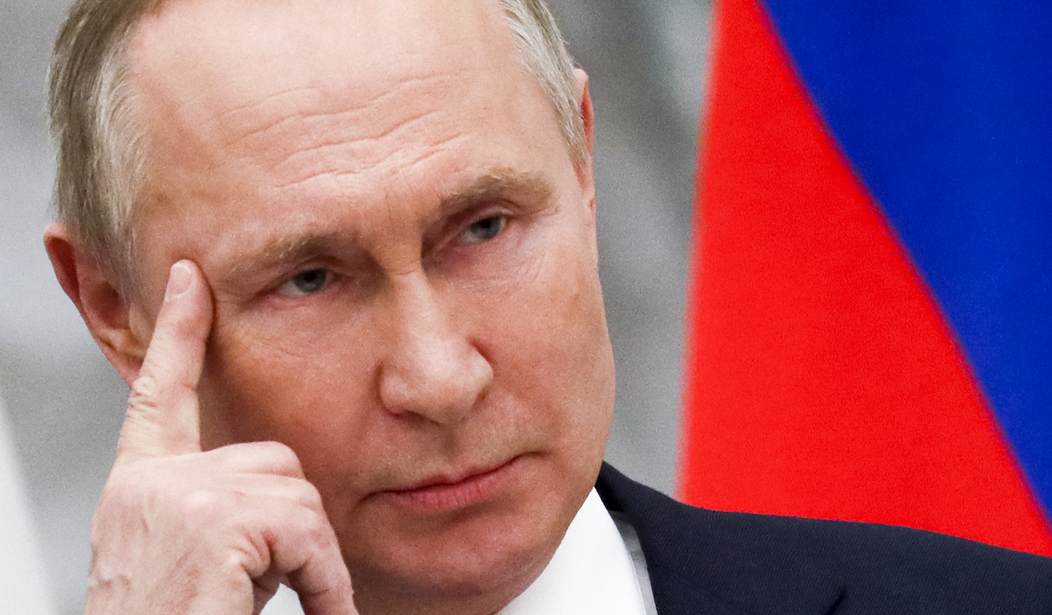Anyone caring to see the folly of allowing the government to decide what is “fake news” or “disinformation,” need look no further than what Russia is doing right now with information emanating from the battlefronts in Ukraine.
Republicans are angry with arbitrary bans by social media giants against conservative users of their platforms, while the GOP’s Democrat colleagues still remain upset with so-called “disinformation” on COVID-19. In response, both sides have taken aim at the tech industry by suggesting, if not demanding, greater government involvement; in the name of truth and fairness, of course. What is happening in Russia today illustrates vividly that such moves would be a grave mistake.
Big Tech, and in particular social media companies, certainly are not blameless for the storm that hangs over them. Bowing to pressure from Woke Scolds and do-gooders in Congress and state legislatures, they established arbitrary rules, enforced by secret algorithms, to police subjective political content. Not unexpectedly, such “soft” censorship prompted backlash that has worked its way up to Congress.
All of this could have been avoided if, as Elon Musk recently tweeted about his own policies on Starlink, social media platforms had maintained a “free speech absolutist” approach to content and let users drown out bad speech with more speech. Why conservatives, who historically have been averse to government regulatory intervention, would lift the privacy tent to allow the nose of the government camel to poke through, is mystifying, but it clearly is present.
Recommended
What the government would do with such control is written into the pages of history – and current events. As Russia’s military blunders in Ukraine pile up, Vladimir Putin is realizing the resulting public relations nightmare is too large to manage with traditional propaganda and has suspended social media companies like Facebook and Twitter, while cracking-down on independent news that cannot be trusted to toe the Party line.
All of this is being justified by the Putin regime using the same language we hear in the U.S. – “fake news” and “disinformation” are threatening the domestic order, and someone (government) had to take action to stop it. Putin shutting down entire social networks and silencing independent journalists under threat of arrest (and likely worse) may be an extreme example, but all the elements making Russia's sweeping crackdown possible can be seen in the United States today – eager government agencies, interest groups clamoring for action, and the technical ability to execute content crackdowns on demand.
The Right’s calls to “break-up” Big Tech, and the Left's constant demands for content censor of speech it does not like reflects a growing public acceptance of government involvement in social media regulation; a role government is more than willing to play. The Biden Administration already is openly, even if unconstitutionally, pressuring private companies to remove content it sees as “harmful.” And Donald Trump’s attempt to ban TikTok in 2020 via Executive Order suggests a roadmap to shutting-down social media companies already exists in some form.
None of this is new. Since the early 1990s, the Deep State has been fighting for a legislative green light to construct backdoors into the communication streams of private citizens, circumventing the ability of communications carriers to prevent such intrusion. Federal law enforcement and its congressional supporters have for those many years waged an all-out war against private encryption, citing “national security” as the justification for legally mandated “backdoor keys.”
The reality today, on display in Russia, is that private encryption is the only way for citizens to communicate freely. Give the Russian government – or any government – the power and tools to evade private electronic encryption, and the window to ubiquitous government control of private communications is opened wide.
It is not too late the reverse the path we are on, which will inevitably lead to what we are seeing in Russia. But such a course correction will require a shift in our attitude toward fixing issues with Big Tech away from government intervention, and back to the concept of leaving the power to log on or log off, or to view or to ignore, where it always has best been placed – in the hands of individuals. Otherwise, what seems like the innocuous nose of the camel will quickly morph into an unwanted visitor with no intent of leaving.
Bob Barr represented Georgia’s Seventh District in the U.S. House of Representatives from 1995 to 2003. He served as the United States Attorney in Atlanta from 1986 to 1990 and was an official with the CIA in the 1970s. He now practices law in Atlanta, Georgia and serves as head of Liberty Guard.
























Join the conversation as a VIP Member